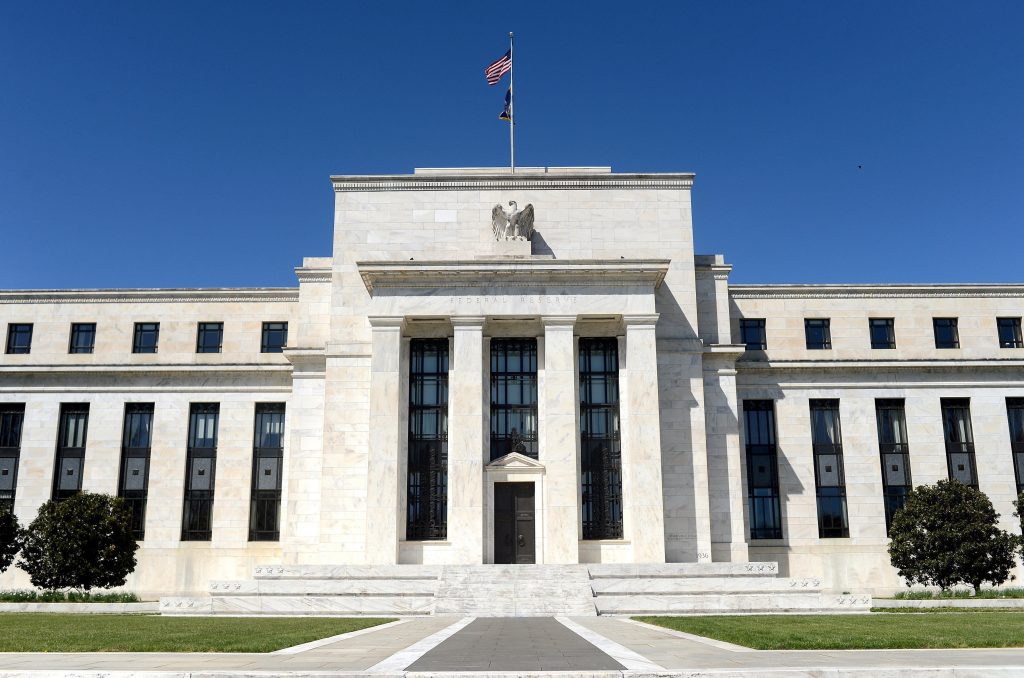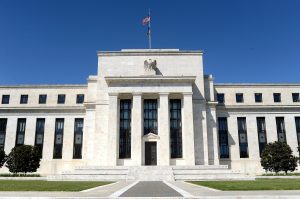Ep. 10 This One Simple Fed Trick Earns the Bankers Billions

 Bob flies solo to explain what he means when he tells crowds, “Back in the fall of 2008, as the financial crisis hit, the Fed began paying banks to not make loans to their customers.” Specifically, Bob explains the new Fed procedure of “paying interest on reserve balances.” As of the Fed’s December 2018 meeting, the Fed now pays the banks $40.8 billion on an annual basis–to not make loans to their customers.
Bob flies solo to explain what he means when he tells crowds, “Back in the fall of 2008, as the financial crisis hit, the Fed began paying banks to not make loans to their customers.” Specifically, Bob explains the new Fed procedure of “paying interest on reserve balances.” As of the Fed’s December 2018 meeting, the Fed now pays the banks $40.8 billion on an annual basis–to not make loans to their customers.Mentioned in the Episode and Other Links of Interest:
- The NY Fed’s official explanation of the interest on reserves program.
- “The Fed paid banks $30 billion in 2017” Business Insider article.
- David Stockman’s The Great Deformation.
- “Three Flawed Fed Exit Options,” a 2011 post from Bob showing how central bank painted itself into a corner.
- The Three Lads and the Lizard King, Bob’s book for his son.
The sound engineer for this episode was Chris Williams. Learn more about his work at ChrisWilliamsAudio.com.

[…] You won’t believe what Powell did next! He didn’t know the cameras were still rolling! […]
I got kind of confused towards the end. Why does the 40 billion get paid out from the ‘earnings’ of the Federal Reserve at all? Cant they just increase the reserves the Banks have by that same amount via book keeping? Or for that matter can’t they just order the treasury department to create that 40 billion? Would the buying/selling of assets and interest rates become coupled again if they did that? I’m having trouble thinking that through.
Another peculiar thing, how are the “excess earnings” – the ones remitted to the treasury department – determined? Do the private shareholders get together and say “this is enough for us, you can have the rest gov.”? What would keep them from claiming all the earnings? Or if the earnings only pay for the costs and they (the shareholders) don’t get any of the earnings then why be a shareholder of the Federal Reserve at all? To get some control over the economy?
I’m also curious about the legalities of what would happen if the interest paid to banks consumed or exceeded the Federal Reserve’s earnings. That is, exactly what would happen if the Federal Reserve didn’t make earnings? Wouldn’t it still be able to do all the things it’s doing now? Does the Federal Reserve Act prevent the Federal Reserve from just creating the money needed to cover its cost of running?
And lastly, how do they plan on eventually getting rid of the mortgage back securities on their balance sheet? These were called ‘toxic’ assets that no one wanted anymore. If there are no buyers, then how can Federal Reserve eventually sell them?
Lots of good questions Mr. Colon. I’ll take a swipe at one of them. If the interest paid to banks exceeded the Fed’s earnings, the Fed would need to get the difference from the U.S. Treasury. In that situation, the taxpayers – that’s us, my friend – would be paying the banksters to sit around and do nothing. That would be fun to watch if it ever happens.
Now, here’s the best part: Fed earnings in excess of Fed expenses are, by law, sent to the U.S. Treasury. Interest payments by the Fed increase Fed expenses and reduce the amount of earnings that would otherwise be sent to Treasury. So, it has always been the case that we taxpayers have been picking up the tab for the interest the Fed pays to the banks.
Thanks for the podcast, a great listen!
When the next recession hits, are there any other potential tools the Fed can utilize to kick the inflation can even further down the road? Was paying Banks to not make loans a completely unheard of idea and when did we learn they were doing this?
If the inflated monetary base hasn’t been loaned out, why hasn’t gold dropped to 2008 levels?
I had also heard a notion that we are or can ‘export’ inflation by being the world’s reserve currency, any truth to that?
Bob, this ONE podcast episode paid for ALL of Tom’s “bonus” episodes. Thanks!
So the The Three Lads and the Lizard King isn’t about Jim Morrison, Ray Manzarek, Robby Krieger, and John Densmore??? I’m so disappointed . . . 😉
Good episode.
It would help me grasp the scale of the numbers if you could express them in terms of per American or per taxpayer or something similar. It is hard to imagine how big 1 trillion really is.
1 trillion is about 3000 per US resident.
Like spending 1.35 million every day from 0 AD to now.
[…] As economist Bob Murphy explains, bankers make billions from risk-free exchanges with the central bank. […]